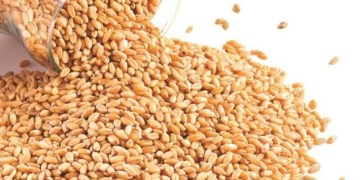By Helen Yan
SINGAPORE (ICIS)–Spot butadiene (BD) prices in Asia rebounded and look set to continue heading north in the near term, with regional supply being whittled down, partly by sellers taking advantage of an open arbitrage window to the US, market sources said on Monday.
Chinese traders holding BD stocks, on the other hand, decided to convert the olefin into synthetic rubbers, which have a longer shelf life, they said.
On 19 April, BD prices were assessed at $1,380-1,420/tonne (€1,049-1,079/tonne) CFR (cost and freight) northeast (NE) Asia in the week ended 19 April, up by an average of $75/tonne from the previous week, according to ICIS.
Some 15,000 tonnes of supply were taken out of Asia, with more than 10,000 tonnes enroute to the US this month and 5,000 tonnes stocks converted into SBR, market sources said.
Traders in China were paying a processing fee to synthetic rubber makers to get their BD stocks converted into rubber, which can be stored up for a year, they said.
BD can be stored for only one to two months during summer, and for a longer duration of four to six months during winter, industry sources said. Synthetic rubbers, on the other hand, can be stored for up to a year.
Before rebounding last week, BD prices had plunged by 35% from 1 March, but further gains are expected to be moderate and slow, industry sources said.
“The BD price rebound will be slow and gradual because the problem is the weak downstream synthetic rubber market,” a BD supplier said.
Demand for BD is subdued because of a spate of production cuts at the downstream butadiene rubber (BR) and styrene butadiene rubber (SBR) plants, with a number of those in China, Taiwan and South Korea currently either shut for maintenance or running at reduced rates amid a weak global automotive industry.
Sinopec Qilu’s 250,000 tonne/year SBR plant at Zibo in east China was taken off line on 8 April and is expected to restart in mid-May, while Shen Hua Chemical Industrial plans to run its 180,000 tonne/year SBR plant at Nantong at 80% of capacity from April to September.
Adding to the woes of synthetic rubber producers are the declining prices of rival product natural rubber (NR), which shed about 20% since 1 March.
SMR20 tyre grade prices at the Malaysia Rubber Exchange closed at $2,340/tonne on 19 April, down by $550/tonne from 1 March when prices were at $2,890/tonne.
Synthetic rubber and NR are raw materials used in the production of tyres for the automotive industry.
Tyre makers are keeping low inventory and are running their plants at reduced rates amid a weak global automotive industry, with Europe still in recession, the US economy struggling to recover and the Chinese and Indian economies slowing down.
China, the world’s biggest automotive market, posted a 7.7% GDP growth in the first quarter of 2013. The growth was lower than expected and represents a deceleration from the 7.9% pace recorded in the December quarter.
“Demand for synthetic rubber is expected to remain flat or soft in the second quarter as we do not expect the tyre industry or automotive industry to recover during this period,” a downstream synthetic rubber producer said.
Plant start-ups are also being delayed because of weak demand.
YPC-GPRO (Nanjing) Rubber’s 100,000 tonne/year BR plant at Nanjing in China’s Jiangsu province will come on stream in end-May or early June. The plant was originally scheduled to start production this month.
($1 = €0.76)
Source: icis.com


























